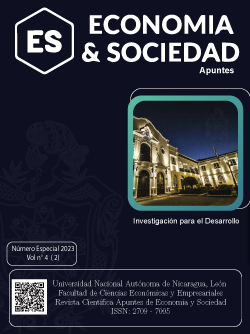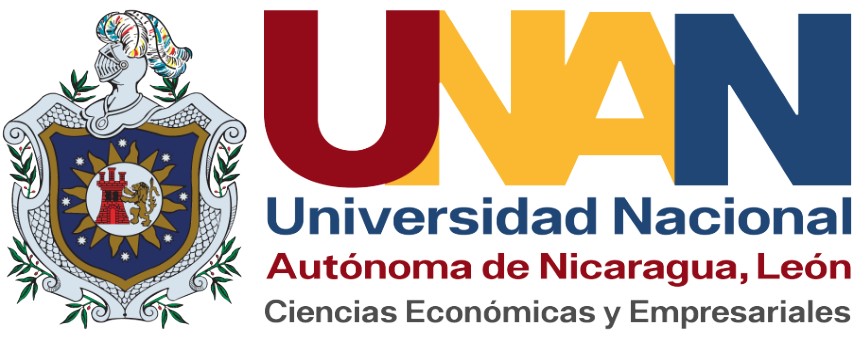Motivations and interests in ICT according to the gender of the postgraduate students
DOI:
https://doi.org/10.5377/aes.v4i2.16528Keywords:
gender gap, digitization, postgraduate students, educational technology, interestsAbstract
With the COVID-19 pandemic, the use of digital technologies has necessarily increased in the educational system. And in this field, research has continued in recent years on how these technologies can help with their implementation to improve the teaching-learning processes of students. However, there is still much controversy today about whether there are differences between the motivations and interests of men and women about ICTs. To find out whether this difference exists or not, research was carried out with 55 postgraduate students, in the subject of "Research in Digital Technology Applied to Education" in a Master's degree in Educational Research of the University of Alicante, in Spain. A descriptive methodology of a quantitative nature was used, in which the students' final projects of the subject (39 women and 16 men), type of research and topic were analyzed. Except for small differences in some of the chosen topics, no significant differences were found. Therefore, this research demystifies the belief that digital technologies are for men and to open new ways of convergence and study on this topic.
Downloads
References
Akre-Aas, C., Kindem, I., & Divitini, M. (2022). Fighting the Gender Gap in ICT. En Ó. Mealha, M. Dascalu, y T. Di Mascio (eds), Ludic, Co-design and Tools Supporting Smart Learning Ecosystems and Smart Education. Smart Innovation, Systems and Technologies, vol 249. Springer. https://doi.org/10.1007/978-981-16-3930-2_3
Alphonce, S., & Mwantimwa, K. (2019). Students’ use of digital learning resources: diversity, motivations and challenges. Information and Learning Sciences, 120(11/12), 758-772. https://doi.org/10.1108/ILS-06-2019-0048
Álvarez-Herrero, J. F. (2020). Tendencias en la Tecnología Educativa de nuestros días. Edetania: estudios y propuestas socioeducativas, 56, 43-60. https://doi.org/10.46583/edetania_2019.56.506
Álvarez-Herrero, J.F. (2021). Las casas del tesoro como recurso motivador en el aprendizaje de las ciencias por indagación en los docentes de educación infantil en una enseñanza online. https://doi.org/10.2307/j.ctv2hdrdwp.4
Bordas-Beltrán, J. L., & Arras-Vota, A. M. (2018). Mexican students’ perspectives on ICT competencies. A gender-based analysis. Revista Latina de Comunicación Social, 73, 462-477. http://doi.org/10.4185/RLCS-2018-1265en
Cabero, J. (2016). ¿Qué debemos aprender de las pasadas investigaciones en Tecnología Educativa? RIITE. Revista Interuniversitaria de Investigación en Tecnología Educativa, 0, 23-33. http://dx.doi.org/10.6018/riite/2016/256741
Cabero, J. y Barroso, J. (2015). Nuevos retos en tecnología educativa. Síntesis.
Cueva, D. A. (2020). La tecnología educativa en tiempos de crisis. Revista Conrado, 16(74), 341-348. https://conrado.ucf.edu.cu/index.php/conrado/article/view/1370
Dar, W. A. & Jan, K. (2021). Student alienation at university level: Psychometric properties and relationship with student’s ICT motives. Education and Information Technologies, 1-20. https://doi.org/10.1007/s10639-021-10756-0
De Pablos, J. (2013). La formación e investigación en el campo de la tecnología educativa. Revista Fuentes, 13, 9–16. https://revistascientificas.us.es/index.php/fuentes/article/view/2554
El-Seoud, M. S., Taj-Eddin, I. A., Seddiek, N., El-Khouly, M. M., & Nosseir, A. (2014). E-learning and students' motivation: A research study on the effect of e-learning on higher education. International journal of emerging technologies in learning (iJET), 9(4), 20-26. http://dx.doi.org/10.3991/ijet.v9i4.3465
Faenza, F., Canali, C., & Carbonaro, A. (2021). Evaluating different approaches to closing the gender gap at ICT summer camps in Italy. En 4th International Conference on Gender Research, ICGR 2021 (pp. 104-113).
Gardner, L., Sheridan, D., & Tian, X. E. (2014). Perceptions of ICT: An Exploration of Gender Differences. En J. Viteli y M. Leikomaa (Eds.), Proceedings of EdMedia 2014-World Conference on Educational Media and Technology (pp. 120-129). Association for the Advancement of Computing in Education (AACE). https://www.learntechlib.org/primary/p/147492/
González, B., Polo, E., y Jiménez, P. J. (2021). La feminización de la Educación Infantil. Un estudio de caso de estudiantes varones en la Universidad de Málaga. REDU. Revista de Docencia Universitaria, 19(1), 75-91. https://doi.org/10.4995/redu.2021.14600
Gros, B., y Durall, E. (2020). Retos y oportunidades del diseño participativo en tecnología educativa. Edutec. Revista Electrónica De Tecnología Educativa, 74, 12-24. https://doi.org/10.21556/edutec.2020.74.1761
Guillén-Gámez, F. D., Romero, S. J., y Ordóñez, X. G. (2020). Diagnosis of the attitudes towards ICT of education students according to gender and educational modality. Apertura (Guadalajara, Jal.), 12(1), 56-71. https://doi.org/10.32870/ap.v12n1.1786
Guillén-Gámez, F. D., Lugones, A., & Mayorga-Fernández, M. J. (2019). ICT use by pre-service foreign languages teachers according to gender, age and motivation. Cogent Education, 6(1), 1-17. http://doi.org/10.1080/2331186X.2019.1574693
Guillen-Gámez, F., Mayorga-Fernandez, M., Bravo-Agapito, J. & Escribano-Ortiz, D. (2021) Analysis of Teachersʹ Padagogical Digital Competence: Identification of Factors Predicting Their Acquisition. Tech Know Learn 26, 481–498 (2021). https://doi.org/10.1007/s10758-019-09432-7
Hanafi, H. F., Said, C. S., Wahab, M. H., & Samsuddin, K. (2017, Agosto). Improving students’ motivation in learning ICT course with the use of a mobile augmented reality learning environment. En IOP Conference Series: Materials Science and Engineering (Vol. 226, No. 1, p. 012114). IOP Publishing. https://doi.org/10.1088/1757-899X/226/1/012114
Harandi, S. R. (2015). Effects of e-learning on Students’ Motivation. Procedia-Social and Behavioral Sciences, 181, 423-430. https://doi.org/10.1016/j.sbspro.2015.04.905
Hatlevik, O. E., & Bjarnø, V. (2021). Examining the relationship between resilience to digital distractions, ICT self-efficacy, motivation, approaches to studying, and time spent on individual studies. Teaching and Teacher Education, 102, 103326. https://doi.org/10.1016/j.tate.2021.103326
Hernández, G. M. (2020). Introducción general Prácticas educativas innovadoras. Tendencias emergentes en pedagogía y en tecnología educativa en el contexto universitario. En Prácticas educativas innovadoras en el contexto universitario (pp. 11-24). T & R Desarrollo Empresarial S.A. de C. V. Recuperado de: https://tyreditorial.com/pdf/practicaseducativas.pdf
Hoffman, M. E. & Vance, D. R. (2007). Gender difference trends in computer literacy of first-year students. En Proceedings of the 38th SIGCSE technical symposium on computer science education (SIGCSE '07) (pp. 405-409). ACM.
Investigación en Tecnología Digital Aplicada a la Educación. (12 de abril 2018). Recuperado de https://masterinvestigaciontics.blogspot.com
Kindsiko, E., & Türk, K. (2017). Detecting major misconceptions about employment in ICT: a study of the myths about ICT work among females. World Academy of Science, Engineering and Technology International Journal of Social, Behavioral, Educational, Economic, Business and Industrial Engineering, 11(1), 107-114.
Lee, Y. C., Malcein, L. A., & Kim, S. C. (2021). Information and Communications Technology (ICT) Usage during COVID-19: Motivating Factors and Implications. International Journal of Environmental Research and Public Health, 18(7), 3571. http://dx.doi.org/10.3390/ijerph18073571
Lin, Y. T., & Jou, M. (2013). Integrating popular web applications in classroom learning environments and its effects on teaching, student learning motivation and performance. Turkish Online Journal of Educational Technology-TOJET, 12(2), 157-165. https://eric.ed.gov/?id=EJ1015422
Madigan, E., Goodfellow, M., & Stone, J. (2007). Gender, perceptions, and reality: technological literacy among first-year students. En Proceedings of the 38th SIGCSE technical symposium on computer science education (SIGCSE '07) (pp. 410-414). ACM.
Márquez-Domínguez, Y., González-Herrera, A. I., y Gutiérrez-Barroso, J. (2018). Las titulaciones de la facultad de educación de la universidad de la laguna. un análisis desde la perspectiva de género. European Scientific Journal, ESJ, 14(8), 56. https://doi.org/10.19044/esj.2018.v14n8p56
Palomares-Ruiz, A., Cebrián, A., López-Parra, E., & García-Toledano, E. (2020). ICT Integration into Science Education and Its Relationship to the Digital Gender Gap. Sustainability, 12(13), 5286. http://doi.org/10.3390/su12135286
Peña-López, I. (2017). PISA 2015 results (Volume III). Students’ well-being. OECD. https://doi.org/10.1787/9789264273856-en
Peter, J., & Valkenburg, P. M. (2006). Research note: Individual differences in perceptions of Internet communication. European Journal of Communication, 21(2), 213–226. https://doi.org/10.1177/0267323105064046
Salinas, J. (2019). Investigación en Tecnología Educativa y avance del conocimiento abierto. RIITE Revista Interuniversitaria de Investigación en Tecnología Educativa, 6, 8-11. https://doi.org/10.6018/riite.386251
Senkbeil, M. (2018). Development and validation of the ICT motivation scale for young adolescents. Results of the international school assessment study ICILS 2013 in Germany. Learning and Individual Differences, 67, 167-176. https://doi.org/10.1016/j.lindif.2018.08.007
Senkbeil, M., & Ihme, J. M. (2017). Motivational factors predicting ICT literacy: First evidence on the structure of an ICT motivation inventory. Computers & Education, 108, 145-158. https://doi.org/10.1016/j.compedu.2017.02.003
Siddiq, F., & Scherer, R. (2019). Is there a gender gap? A meta-analysis of the gender differences in students' ICT literacy. Educational research review, 27, 205-217. https://doi.org/10.1016/j.edurev.2019.03.007
Stone, J. (2020). ICT Self-Efficacy: Gender and Socioeconomic Influences Among First-Year Students. International Journal of Gender, Science and Technology, 12(3), 377-394. http://genderandset.open.ac.uk/index.php/genderandset/article/view/670
Tondeur, J., Van de Velde, S., Vermeersch, H., & Van Houtte, M. (2016). Gender Differences in the ICT Profile of University Students: A Quantitative Analysis. DiGeSt. Journal of Diversity and Gender Studies, 3(1), 57–77. https://doi.org/10.11116/jdivegendstud.3.1.0057
Valentín, A., Mateos, P. M., González-Tablas, M. M., Pérez, L., López, E., & García, I. (2013). Motivation and learning strategies in the use of ICTs among university students. Computers & Education, 61, 52-58. https://doi.org/10.1016/j.compedu.2012.09.008
Verma, C., & Dahiya, S. (2016). Gender difference towards information and communication technology awareness in Indian universities. SpringerPlus, 5, 370. https://doi.org/10.1186/s40064-016-2003-1
Xiao, F., & Sun, L. (2021). Profiles of student ICT use and their relations to background, motivational factors, and academic achievement. Journal of Research on Technology in Education, 1-17. https://doi.org/10.1080/15391523.2021.1876577
Published
How to Cite
Issue
Section
License
Copyright (c) 2023 Universidad Nacional Autónoma de Nicaragua, León

This work is licensed under a Creative Commons Attribution-NonCommercial-ShareAlike 4.0 International License.














